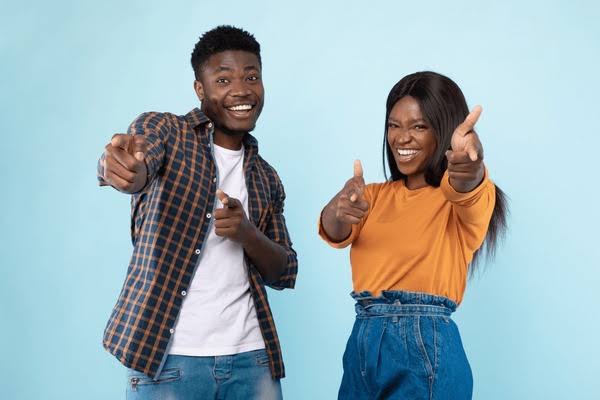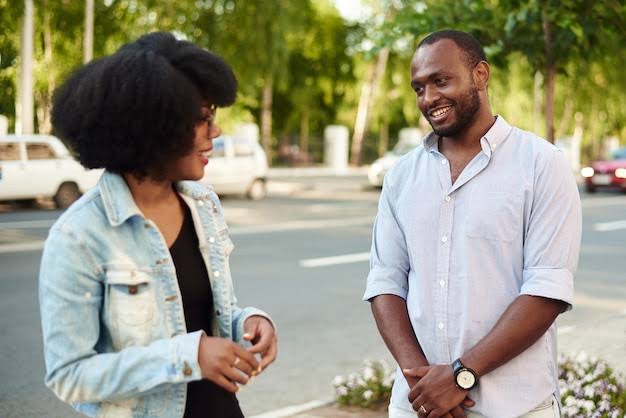Platonic or Problematic: The Truth About Male–Female Friendships

There’s a kind of tension that hovers around male–female friendships, the kind that makes people tilt their heads, lower their voices, and ask, “Are you sure there’s nothing going on?” It’s almost as though the idea of a man and a woman sharing a deep, genuine connection without romance or attraction somewhere in the mix is too strange to believe. Yet here we are, in a generation that claims to be emotionally intelligent but still can’t decide whether a guy and a girl can really just be friends.
The question itself isn’t new, but it feels much louder now. Maybe because the lines between friendship and flirtation have blurred in a digital age where good morning texts can mean anything from genuine care to something dangerously suggestive.
In African societies, where gender roles and emotional expression are tightly woven into cultural fabric, this question carries even more weight. Friendship, after all, isn’t just about companionship, it’s also a mirror of how we understand boundaries, expectations, and power. And perhaps that’s where the confusion begins.
When Friendship Starts Looking Like a Relationship
Male–female friendships are often placed under suspicion, not because of what they are, but because of what people think they might become. This stems from a combination of societal norms that assume men and women are primarily romantic partners and association opens the floor for attraction to develop. In many African settings, closeness between the opposite sexes has always been viewed through the lens of potential romance. It’s not entirely cultural paranoia, it’s historical socialization. Men and women were rarely encouraged to build emotional intimacy outside of marriage or family ties. Friendship wasn’t a public affair, it was either formal or familial. So when modern social life began to encourage more mingling, society didn’t quite know what to do with it.
Now, every male–female connection gets dissected, and every act of kindness becomes evidence of hidden feelings. The possibility of purely platonic friendship feels like an exception, not the rule itself.
The Attraction Dilemma
The biggest argument against the possibility of platonic friendship often circles back to attraction, the uninvited guest that supposedly ruins everything. “Someone will always catch feelings,” people say, like it’s a law of physics. But maybe it’s not that simple.
Attraction doesn’t automatically destroy friendship, it’s the response to it that determines whether things fall apart or not. Mature friendships acknowledge attraction without being ruled by it. They draw boundaries, communicate honestly, and understand that being fond of someone doesn’t always mean you want something more.

In societies where emotional maturity isn’t often modeled; where men are taught to suppress vulnerability and women to equate attention with affection, attraction easily becomes a threat. But in truth, it’s just another human emotion, one that can coexist with respect, understanding, and self-control.
Friendship in the Age of Performance
There’s also the subtle problem of performative closeness. Many friendships today are built in the eyes of social media, where sharing photos, inside jokes, and lengthy captions with certain emojis can make platonic bonds look suspiciously romantic. The internet loves to assign labels. Online culture has created a kind of hyper‐visibility that puts pressure on male–female friendships to prove their innocence. You can’t post too much together without raising eyebrows, you can’t be too affectionate without being accused of acting like a couple. Even genuine friendships start to feel like they’re on trial for something they didn’t do.
And yet, friendship thrives on shared experiences such as laughter, long conversations, emotional honesty, inside memes, and even comfortable silences. So, how do we draw the line between normal connection and something else? Perhaps the real challenge is learning to navigate closeness in a world that constantly pressures us to fit our friendships into a binary of either “just friends” or “romantic couple”, leaving little room for the rich and beautiful middle ground.
The Gendered Double Standard
It’s worth noting that male–female friendships aren’t questioned equally. When a man has a close female friend, people often assume he’s interested in her or using the friendship as a waiting room for romance. When a woman has a close male friend, she’s warned to be careful as if the friendship is a trap waiting to snap shut with her in it.

The double standard runs deep. Society still views men as initiators and women as responders, which frames even friendship within the logic of pursuit. This makes it hard to believe in mutual platonic bonds because one gender is almost always seen as having an ulterior motive in befriending the other.
However, this is precisely why such friendships matter. They challenge the idea that every cross-gender interaction must be transactional in nature. They help remind us that connection can exist outside of romantic scripts, and that emotional intelligence isn’t restricted to a specific gender.
What Friendship Teaches Us About Ourselves
At the core, male–female friendships are not just about gender, they’re about humanity. They teach us about communication, respect and balance. They reveal how well we can hold space for another person without needing to possess them. In a culture that constantly defines relationships in terms of ownership; my man, my woman, my person, platonic friendships feel like quiet rebellion. They prove that intimacy can exist without exclusivity, and affection without agenda.
Yet, they also test honesty. Because the truth is, not every friendship will remain purely platonic, and that’s okay. The goal isn’t to avoid feelings altogether but to navigate them with awareness. Not every shift in emotion has to end in chaos, sometimes it just deepens understanding or gracefully fades into something simpler.
The Real Question
So, can a guy and a girl just be friends? Better still, do we as a society allow them to be? Because as long as every smile is overanalyzed, every compliment questioned, and every act of closeness viewed as potential scandal, we’ll keep teaching people to distrust what’s natural. The pure, uncomplicated kind of friendship will remain guilty until proven innocent.
In the end, “just friends” might be the purest kind of love; quiet, steady, and unbothered by the need to be more.
Recommended Articles
What if the Internet Disappeared Overnight?

What if the Internet vanished overnight? Imagine waking up to a world without Wi-Fi, social media, or streaming, Silence...
Behind the Screen: The Cost of Connection

A reflection on how digital connection turned into performance, where validation replaced vulnerability and visibility r...
You may also like...
Warriors Star Curry Sidelined: Illness Forces Missed Cup Opener!

Golden State Warriors star Steph Curry will miss Friday's NBA Cup opener against the Denver Nuggets due to a worsening i...
NBA Gambling Scandal Heats Up: Player Enters Not Guilty Plea!

Former NBA player Damon Jones has pleaded not guilty to federal charges of profiting from rigged poker games and providi...
Tyler Perry's 'Finding Joy' Unleashes Holiday Romance: Stars Dish on Filming, Critics Weigh In!

"Tyler Perry's Finding Joy" explores a holiday romance centered on an aspiring fashion designer rescued by a stoic woods...
Katy Perry's Daring New Video: Pop Star Cheats Death in a Vulnerable Epic

Katy Perry's new music video for her 2025 solo single, "Bandaids," showcases her emotional journey and resilience throug...
Royal Family Turmoil: King Charles' Stern Warning to Beatrice and Eugenie Over Andrew Controversy

King Charles has warned Princesses Beatrice and Eugenie to become self-sufficient amidst Prince Andrew's latest scandal ...
Nigeria Forms Elite Task Force for 'Detty' December, Approves New Tourism Zones!

Nigeria's Federal Government has launched a comprehensive plan to boost its cultural and tourism sectors, including a Pr...
Namibia Crowned Africa's Best Adventure Tourism Destination!

Namibia has been crowned Africa's best adventure tourism destination at the 2025 Africa Tourism Awards, with Swakopmund ...
Altman's Bold Stance: OpenAI Demands No Government Bailout

OpenAI faces scrutiny over its $1.4 trillion data center costs after CFO Sarah Friar suggested government loan backstops...
.png&w=1920&q=75)
